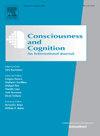假记忆的 Deese-Roediger-Mcdermott 回忆测量与消退影响偏差之间的关系。
IF 2.1
3区 心理学
Q2 PSYCHOLOGY, EXPERIMENTAL
引用次数: 0
摘要
情感消退偏差(FAB)是指自传性事件记忆中不愉快情感的消退速度快于愉快情感的消退速度,它被认为是一种健康的应对机制,因为它与健康的测量指标(如自尊和积极的 PANAS)呈正相关,而与不健康的测量指标(如心理困扰和消极的 PANAS)呈负相关。一些研究人员认为,Deese-Roediger McDermott(DRM)临界引诱词的虚假记忆在概念上等同于自传体事件记忆的虚假记忆,但这一观点尚未得到研究。基于虚假自传事件记忆对 FAB 负向预测的发现,本研究测试了虚假 DRM 单词记忆是否会对自传事件记忆的 FAB 负向预测,这将证明 DRM 记忆和自传事件记忆在概念上等同。我们发现,对虚假词语回忆的三种测量方法对 FAB 有正向预测作用,这一结果与之前的研究结果以及 DRM 虚假词语记忆在概念上与自传体事件记忆相同的论点相反。本文章由计算机程序翻译,如有差异,请以英文原文为准。
Relation between Deese-Roediger-Mcdermott recall measures of false memory and the fading affect bias
The fading affect bias (FAB) is the faster fading of unpleasant affect than pleasant affect for autobiographical event memories, and it is considered a healthy coping mechanism because it is positively related to healthy measures (e.g., self-esteem and positive PANAS), whereas it is negatively related to unhealthy measures (e.g., psychological distress and negative PANAS). Some researchers suggest that Deese-Roediger McDermott (DRM) critical lure false memories for words are conceptually equivalent to false memories for autobiographical event memories, which has not been examined. Based on the finding that false autobiographical event memories negatively predict FAB, the current study tested if false DRM word memories would negatively predict FAB for autobiographical event memories, which would demonstrate support for the conceptual equivalence of DRM memories and autobiographical event memories. We found that three measures of false word recall positively predicted FAB, which is a result that is contrary to prior findings and the contention that DRM false memories for words are conceptually the same as autobiographical event memories.
求助全文
通过发布文献求助,成功后即可免费获取论文全文。
去求助
来源期刊

Consciousness and Cognition
PSYCHOLOGY, EXPERIMENTAL-
CiteScore
4.30
自引率
8.30%
发文量
123
期刊介绍:
Consciousness and Cognition: An International Journal provides a forum for a natural-science approach to the issues of consciousness, voluntary control, and self. The journal features empirical research (in the form of regular articles and short reports) and theoretical articles. Integrative theoretical and critical literature reviews, and tutorial reviews are also published. The journal aims to be both scientifically rigorous and open to novel contributions.
 求助内容:
求助内容: 应助结果提醒方式:
应助结果提醒方式:


